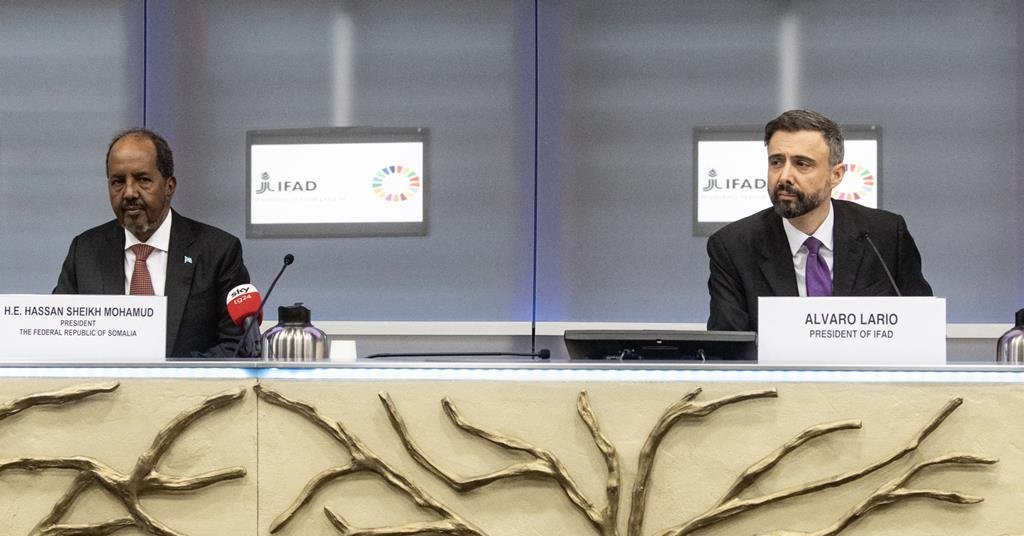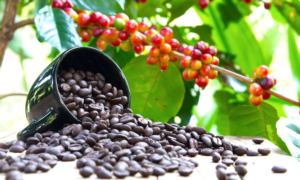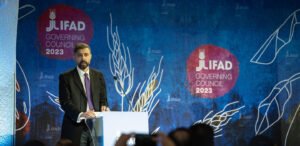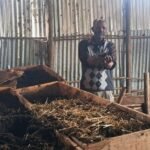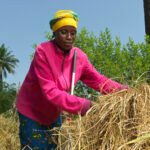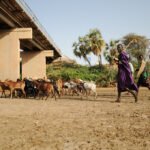By Panagri Media Correspondent, February 15, 2023, As Somalia continues to experience a historic drought, pushing millions of Somalis into acute food insecurity, Alvaro Lario, President of the International Fund for Agricultural Development (IFAD) announced today during IFAD’s 46th session of the Governing Council that it will substantially strengthen its support to Somalia and resume its direct investments after loan arrears resulted in a three-decade long suspension. Somalia has just now cleared its debt with IFAD through member-state support.
“Today, the situation of millions of Somalis is heartbreaking,” said Lario. “Five consecutive seasons of rains have failed, devastating their lives and their ability to cope, which has been further eroded by conflict, climate shocks, desert locust outbreaks and high food, fuel and fertilizer prices. We must provide humanitarian assistance to save lives now, but it is equally important that we lay the foundation today to ensure a brighter future.”
He added: “Solutions exist. It is inhumane to keep people living in cycles of crises. We must invest today in long-term solutions. And this means rural development.“
Later, during a press conference, Hassan Sheikh Mohamud, the President of the Federal Republic of Somalia, emphasized the importance of IFAD’s renewed commitment: “This re-engagement is an opportunity for a new dawn for Somalia to address many food security priorities in the country,” he said. “The re-engagement of IFAD is the beginning of the process of transition from humanitarian to development and it helps a lot – it is opening doors, and other organizations will follow suit.”
Lario announced that IFAD is immediately making US$11.6 million available and mobilizing resources for a new US$50 million agricultural development project, providing seeds, irrigation, farming and veterinary services, small microfinance loans, training in climate smart and adaptation technics to improve crop and livestock production.
“We must help small-scale farmers and pastoralists adapt to climate change and build their resilience so that they can cope with future shocks,” said Lario. “They need funding and training.”
According to the Integrated Phase Classification, 5.6 million Somalis are currently experiencing high levels of acute food insecurity, including 214,000 people considered in a catastrophe situation due to an unprecedented drought, not seen in decades. Projections show that as many as 8.3 million Somalis could face high levels of acute food insecurity between April and June 2023. The 2023 Somalia Humanitarian Response Plan aims to assist 7.6 million people across Somalia this year. This includes preventing loss of life of approximately 6.7 million of the most vulnerable people.
IFAD’s renewed direct investments are now made possible thanks to Belgium, Germany, Italy and Sweden which supported Somalia in clearing its arrears to IFAD. The arrears prevented Somalia from benefiting from IFAD’s highly concessional loans and grants since 1991, when the civil war started in Somalia.
“Germany’s clearing of Somalia’s outstanding debts with IFAD allows the Fund to resume its important role in supporting rural development and sustainable climate-resilient agriculture in Somalia. We have taken this rather unusual bilateral step in order to boost Somalia’s efforts to withstand economic and climatic shocks and in order to strengthen institutions and ownership in times of crisis so as to leverage further financing for climate-resilient agriculture,” said Jochen Flasbarth, State Secretary, Federal Ministry of Economic Cooperation and Development of Germany.
“The climate crisis has severe consequences on agriculture and food production in the world’s poorest countries. It is urgent that we strengthen the resilience of rural populations in these countries,” said Ambassador Pierre-Emanuel De Bauw, Belgium’s Governor to IFAD. “Belgium is honoured to be one of the first countries to have contributed to clear Somalia’s debt to IFAD, enabling the country to benefit from IFAD funding to help small-scale farmers adapt to climate changes and tackle land degradation.“
Despite the arrears and the suspension of loans, IFAD has been actively mobilizing grants from donors to Somalia and channeling resources for rural development projects in the country. Since the early 1990’s, IFAD has channeled about US$40 million to Somalia. There are two ongoing projects at the moment.
A project in Puntland helps pastoralists and agro-pastoralists rehabilitate irrigation systems, improve livestock health, use drip irrigation, restore degraded rangelands and use solar energy. IFAD also provides extraordinary support to Somalia under its Crisis Relief Initiative to help the country withstand the impacts of the war in Ukraine by responding to urgent needs for seeds, fertilizers, goats and sheep, irrigation and renewable energies, and rehabilitation of water sources, thus protecting the livelihoods of about 72 000 people

